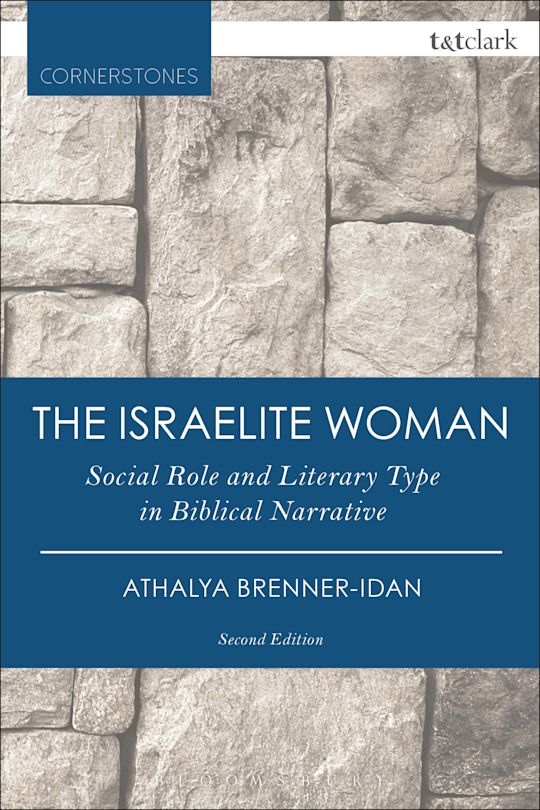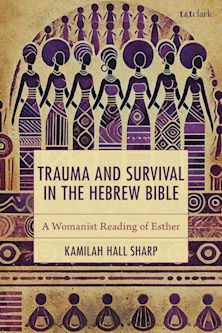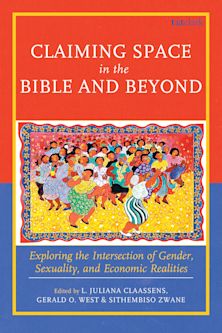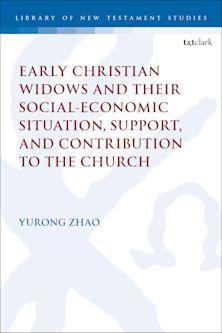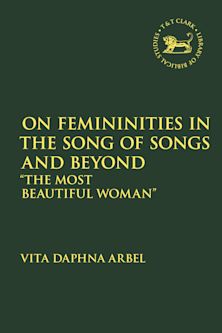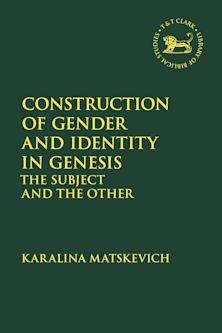- Home
- ACADEMIC
- Biblical Studies
- Gender and Sexuality in the Bible
- The Israelite Woman
The Israelite Woman
Social Role and Literary Type in Biblical Narrative
The Israelite Woman
Social Role and Literary Type in Biblical Narrative
You must sign in to add this item to your wishlist. Please sign in or create an account
Description
In the first edition of The Israelite Woman Athalya Brenner-Idan provided the first book-length treatment by a feminist biblical scholar of the female characters in the Hebrew Bible. Now, thirty years later, Brenner provides a fresh take on this ground-breaking work, considering how scholarly observation of female biblical characters has changed and how it has not. Brenner-Idan also provides a new and highly personal introduction to the book, which details, perhaps surprisingly to present readers, what was at stake for female biblical scholars looking to engage honestly in the academic debate at the time in which the book was first written. This will make difficult reading for some, particularly those whose own views have not changed.
The main part of the book presents Brenner-Idans's now classic examination of the roles of women in the society of ancient Israel, and the roles they play in the biblical narratives. In Part I Brenner-Idan surveys what can be known about the roles of queens, wise women, women poets and authors, prophetesses, magicians, sorcerers and witches and female prostitutes in Israelite society. In Part II the focus is on the typical roles in which Hebrew women appear in biblical stories, as mother of the hero, as temptress, as foreigner, and as ancestress. In these narratives, for which there are standard plots and structures and characterizations readily available, women play a generally domestic role.
Not only is the book a highly valuable resource detailing the social role of women in ancient Israel, and showing how the interpretation of women in the bible has been influenced by convention, but it is also a challenging reminder of how outdated attitudes can still prevail.
Table of Contents
Preface
Preface [1985]
1. Introduction
Part 1: Women, Professions and Social Institutions
2. Queens
3. Wise Women
4. Women Poets and Authors
5. Prophetesses
6. Magicians
7. Female Prostitution
Part 2: Literary Paradigms of Female Types and Behaviour
8. General Considerations
9. Mothers of Great Men (The Hero's Mother)
10. The Two Sides of the Temptress
11. Foreign Women
12. The Ancestress- an extended female metaphor
13. Conclusion
Afterword: A Personal Note
Notes
Bibliography
Product details
| Published | 20 Nov 2014 |
|---|---|
| Format | Ebook (Epub & Mobi) |
| Edition | 1st |
| Extent | 192 |
| ISBN | 9780567657756 |
| Imprint | T&T Clark |
| Series | T&T Clark Cornerstones |
| Publisher | Bloomsbury Publishing |
About the contributors
Reviews
-
A wonderful book - concise, thoughtful, and as much an introduction to the Hebrew Bible as a whole as a reflection of the place of women within it. Athalya is very attentive to detail, and comprehensive - she provides a rich spectrum of the social roles of women, and a survey of literary schemata concerning women e.g. as temptresses, or as mothers of heroes. The book concludes with a brilliantly insightful consideration of the pros and cons of the story of the Garden of Eden, and woman's place in it. As Athalya writes in her final reflection, she intended in writing the book to fill in the gaps in Israelite history and the study of women in its literature. It succeeds beautifully.
Francis Landy, University of Alberta, Canada
-
The Israelite Woman represents the first book-length treatment of the appearance of female characters in the Hebrew Bible. Mainstream male scholars routinely assumed that the portrayal of women characters in the text corresponds fairly accurately to the lives and activities of real women. Brenner's solution was to use a broad swathe of methods drawn from folklore, literary criticism, classics, anthropology, and archaeology to begin to sort through the relationship between literary character
and lived reality. The resulting work is no less than a methodological revolution that brought female scholars into relevance, gathering together voices and work that had never appeared together previously, and transforming existing practices and conclusions.Carole Fontaine, Andover Newton Theological School, USA
-
The depth of scholarship is unassailable…The book is highly recommended.
The Bible Today

ONLINE RESOURCES
Bloomsbury Collections
This book is available on Bloomsbury Collections where your library has access.









